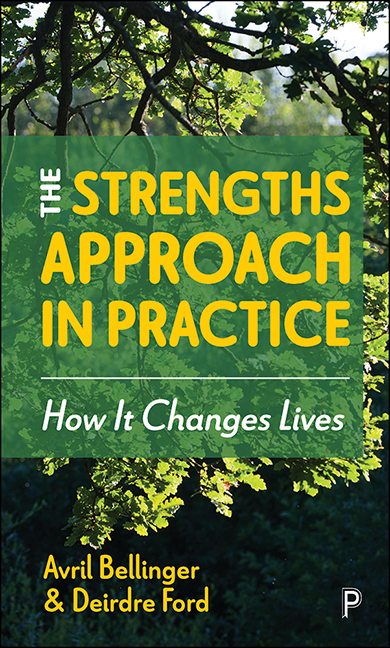Book contents
- Frontmatter
- Dedication
- Contents
- List of figures, tables and boxes
- About the authors
- Acknowledgements
- Preface
- Introduction: The strengths approach in a global emergency
- 1 A strengths approach to human need
- 2 A strengths approach to law and policy
- 3 A strengths approach to organisational development
- 4 A strengths approach to governance and management
- 5 A strengths approach to funding an NGO
- 6 A strengths approach to research
- 7 A strengths approach to student learning
- 8 A strengths approach to growing community
- 9 The strengths approach in practice: how it changes lives
- References
- Index
1 - A strengths approach to human need
Published online by Cambridge University Press: 15 September 2022
- Frontmatter
- Dedication
- Contents
- List of figures, tables and boxes
- About the authors
- Acknowledgements
- Preface
- Introduction: The strengths approach in a global emergency
- 1 A strengths approach to human need
- 2 A strengths approach to law and policy
- 3 A strengths approach to organisational development
- 4 A strengths approach to governance and management
- 5 A strengths approach to funding an NGO
- 6 A strengths approach to research
- 7 A strengths approach to student learning
- 8 A strengths approach to growing community
- 9 The strengths approach in practice: how it changes lives
- References
- Index
Summary
Hope is not like a lottery ticket you can sit on the sofa and clutch, feeling lucky … hope is an axe you break down the door with in an emergency; because hope should shove you out the door, because it will take everything you have to steer the future away from endless war, from the annihilation of the earth's treasures and the grinding down of the poor and marginal. Hope just means another world might be possible, not promised, not guaranteed. Hope calls for action; action is impossible without hope … To hope is to give yourself to the future, and that commitment to the future makes the present inhabitable.
Solnit (2005: 5)Introduction
We have never needed a strengths approach more than we do now – when a climate emergency and the COVID-19 pandemic compete for public attention with global economic interests; when populism is fed by frustrated individual ambitions and the entitlement of the few triumphs over the common good. A strong incentive for writing this book stems from the resurgence of far-right populism, racism, homophobia, hate crime and division with the concomitant danger that ideas like the strengths approach are eroded and diffused. But it is in the power of such ideologies to change society for the better, not least because their consequences are so radical in shaping the way society functions. Just as the forces of greed and power are constantly re-made and repositioned, so, too, can practices that are mutually beneficial be re-made, reinstated and re-articulated. This book is a small contribution to the re-telling of that story.
This chapter introduces the strengths approach, its generic character as a whole systems response and its wider manifestations. Drawing on our specialist knowledge from the discipline of social work, we present its historical roots and applications. We explore an important component of the approach – that of our relationship with one another and with the environment. We critique the way it has been colonised in welfare services by government in mitigation of the neoliberal project. The scholarship presented here is also a defence against claims that the strengths approach lacks evidence of efficacy or that it shies away from problems.
- Type
- Chapter
- Information
- The Strengths Approach in PracticeHow It Changes Lives, pp. 11 - 32Publisher: Bristol University PressPrint publication year: 2022



